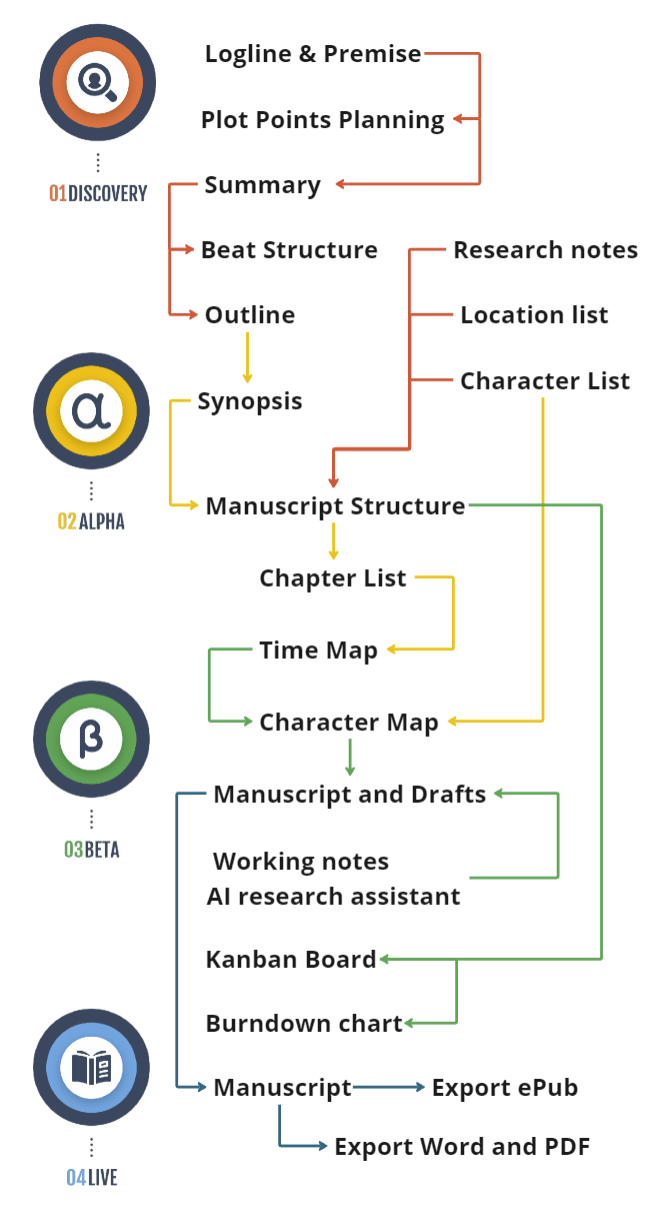There is a moment in every writer’s journey when a new door swings open without warning. You might be content following the well-trodden path—query letters, standard pitches, established markets—until suddenly, you discover an opportunity you never considered. It can feel like stepping through a portal into a realm brimming with untapped possibilities. You are both excited and uneasy, because any new frontier demands courage. In the world of storytelling, we too can invent new structures that reshape how our words find readers.
Historically, writers have relied on fixed channels to share stories. Magazines, newspapers, and traditional publishers once held most of the power, much like ancient desert cities controlling the wells in Frank Herbert’s Dune. When the digital age arrived, many writers suddenly had access to personal blogs, social media, and online communities. These developments were radical, but each wave of innovation eventually became “normal.”
Now we stand on a threshold again. New frontiers appear in the form of crowdfunding platforms, membership-based newsletters, immersive audio experiences, and even interactive fiction. Every time technology shifts, it uncovers hidden corridors for authors who dare to explore them. Any writer—veterans with multiple novels, up-and-coming bloggers, or short story authors—could benefit from stepping across these frontiers. Even if you are brand-new to the craft and have only a few chapters to your name, the moment you discover an unfamiliar way to share your words, you have the potential to expand your reach. Just as a traveler who finds a hidden oasis might become the founder of a flourishing settlement, you may uncover an approach that reshapes your own writing future, as well as the journeys of those who follow.
When you sense a frontier forming, begin by studying it with genuine curiosity. If it is a new distribution channel, investigate how readers interact there. If it is an online marketplace for serialized stories, sign up and observe. This preliminary research mirrors the careful steps a wanderer in a fantasy realm might take before entering unknown territory. Once you feel a measure of comfort, take the next move—post an excerpt, share a short piece of writing, or reach out to an influential member of that community. Do not fear imperfection. The first ones to explore a new land often do so with crude maps and uncertain compasses.
I believe that writing is more than just words on paper. It is a living bond between author and audience, shaped by every shift in the cultural or technological tide. The moment we see a possible gateway, we have a choice: stay put or step forward. Crossing that threshold may feel risky, but in a world where anything can go viral overnight, risk can become the seed of incredible success.
Embracing a new frontier matters because it can lead to unexpected breakthroughs, both creatively and professionally. Frank Herbert’s worlds revolve around deserts and hidden water. Brandon Sanderson’s stories reveal magic systems built on invisible forces. In much the same way, new frontiers in writing often hinge on subtle innovations that suddenly become pivotal—like short videos that entice viewers to read your micro fiction, or interactive transcripts that let readers shape your characters’ fates. Each frontier is a doorway to growth and deeper engagement with your audience.
Looking ahead, we can foresee a gradual merging of text, audio, and community collaboration. Imagine offering your next novel in segments that allow readers to vote on a character’s next move. Imagine forging alliances with fellow authors to create entire digital “realms” of interconnected stories. If you, as a writer, remain open-minded and alert, you might be the next pioneer. The important part is to commit, adapt, and carry your passion for storytelling into every new environment.
Stand at the edge of your known world, look to the horizon, and take the first bold step into unexplored territory—your words deserve to be discovered by those waiting beyond the next frontier.




